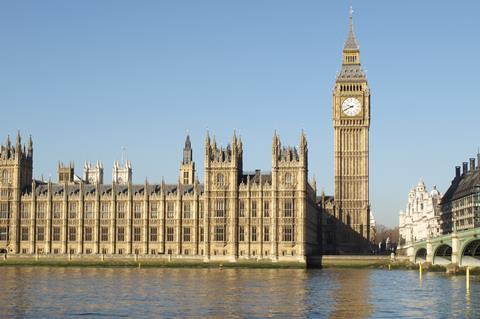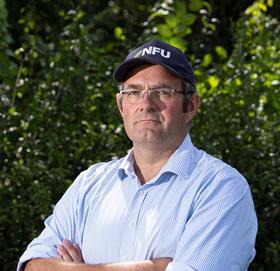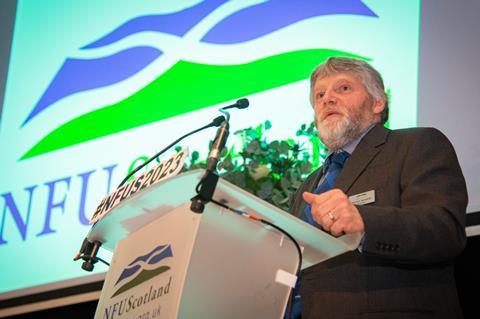Farmers have staged a mass lobby and protest to Westminster and their own MPs against the proposed Inheritance Tax (IHT) changes and the impact they say it will have on UK food producers.

The rally highlighted what producers see as the injustices and failings of the Government’s proposed changes to Agricultural Property Relief (APR) and Business Property Relief (BPR).
The National Farmers’ Union (NFU) said that up to 70,000 farms could be affected by the changes, despite Government claims that the changes would only affect around 500 farms.
NFU president Tom Bradshaw said: “I don’t think I’ve ever seen the industry this angry, this disillusioned and this upset. And given what we’ve had to be angry about in recent years that’s saying something.”
He emphasised: “There has never been a budget this bad for farming in my lifetime.”
NFU members voice opinions
Bradshaw told NFU members that the Government’s decision on these issues was based on flawed data: “This shocking policy is built on bad data and was launched with no consultation. The Treasury didn’t even tell Defra!

“To launch a policy this destructive without speaking to anyone involved in farming beggars’ belief. And let us remember that they promised not to do this when they were wooing the rural vote. It’s not only been bungled in delivery, it’s also nothing short of a stab in the back.
“But we also know that APR & BPR is the straw which broke the camel’s back for farming.
“After years of changing policy and 18 months of some of the worst weather on record, the budget has been a kick in the teeth. It is full of let-downs for our vital sector: accelerated BPS reductions, double cab pick-up taxes, new taxes on fertilisers. The list goes on.
“Rest assured the NFU, and the other unions, are fighting all of these policies.”
He said the Treasury was not going to achieve what it had set out to do: “Far from catching wealthy homeowners with a bit of land, the Treasury’s mangling of the data means those people will generally not be affected.
“It’s the farms producing this country’s food, which are more valuable assets, that are caught in the eye of the storm. The irony that this asset wealth will never become actual wealth unless farms are broken up or sold - kicking the legs out from under Britain’s food security - is a bitter one.”
One member said, echoing the thoughts of others: “I’m here today to support my own family because it’s going to mean massive financial implications for us and to support all other farmers that are in the same boat.”
Another NFU member said the day was: “A moment in a generation that we need to stand up for the countryside and for farming and our industry. This is the final straw that will really decimate family farms.”

NFU Scotland president Martin Kennedy, who joined fellow UK farming Union Presidents on stage at Church House, Westminster said: “For a Government to have stepped away from its claim that ‘food security is national security’ and targeted taxation changes at family farms in its first budget has left farming and crofting families deeply angry and frustrated.
“Inheritance tax reliefs give certainty to family farms that they will be able to keep the farm in the family and keep producing food for the nation. Without this, the family will often have little alternative but to sell the farm, or part of the farm, to pay taxes. The resulting breakup of many family farms will have a devastating effect on rural communities which have small family farms at their heart.
Government says it supports farmers
Steve Reed told SkyNews: “We’ve inherited a £22 billion black hole from the previous Government, and the previous Chancellor of the Exchequer covered the scale of that problem up, so none of us knew how difficult the problem would be when we were coming into Government.
“But this Government’s commitment to farming, and to farmers, is absolute. That’s why we’ve allocated £5 billion to farming in the Budget; that’s the biggest amount of money in our country’s history for sustainable food production, but we have to plug that £22 billion black hole in our public finances otherwise we can’t fix our public services like the broken National Health Service.
“So, it’s only right that we’ve had to ask the wealthiest land owners and the biggest farms to pay their fair share, but I would emphasise only around 500 farmers will be affected, because the vast majority of farmers will pay no more under the new scheme than they do under the current one.”















